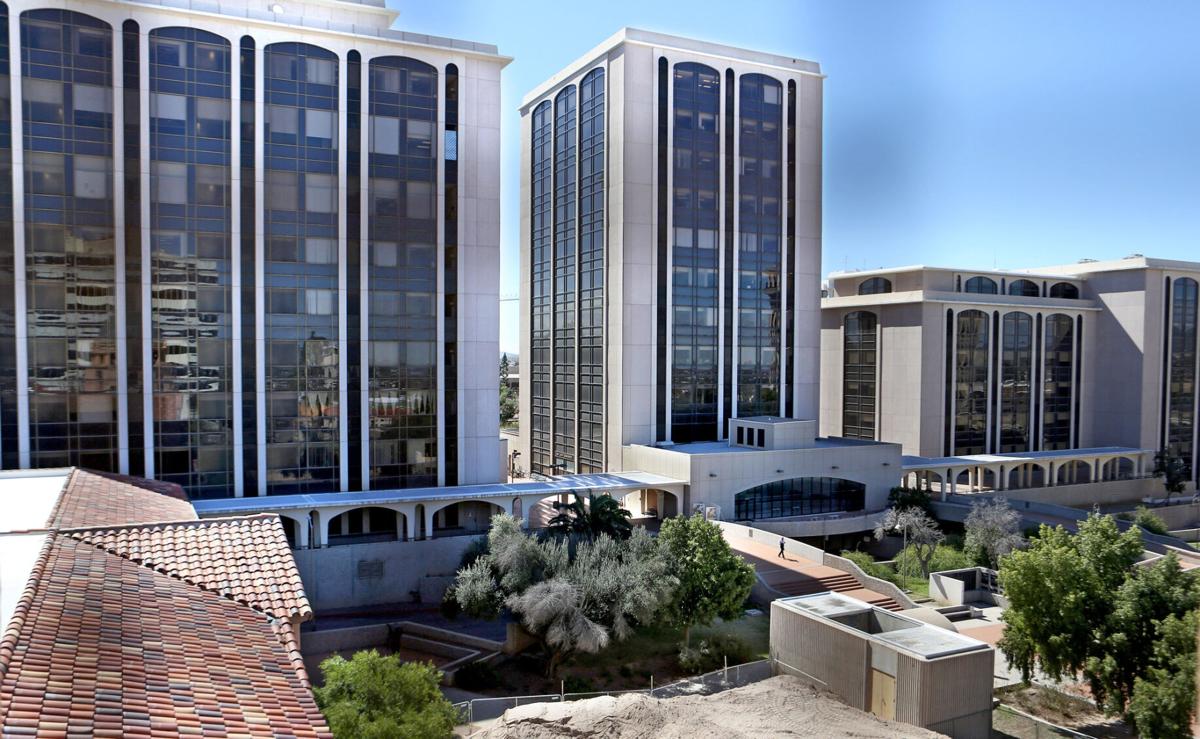The Pima County Board of Supervisors has set next fiscal year’s budget cap at about $1.76 billion, representing a slight decrease from last year as the county aims to stabilize its finances while cash from COVID-19 era grants wanes.
The board approved the tentative budget on Tuesday with about 9% fewer expenditures than last year’s $1.9 billion budget. Supervisors can still request to move funding around, but the total budget amount and tax rates can’t be changed with final budget adoption on June 20. The next fiscal year begins July 1.
This year’s budget aims to create financial stability, maintain critical infrastructure and implement staff raises while preparing for diminishing federal funding and millions in costs the state has passed onto the county to cover.
The combined property tax rate is set to increase by about 0.8% over last year’s rate and climb to $5.1048 per $100 of a home’s limited value, or the property's taxable value.
A residential class three property with a limited value of $200,000 would owe about $1,021 under the tax rate. The figure comes from multiplying the limited value of a home by its assessment ratio to get the limited assessed value. The limited assessed value is then divided by 100 and multiplied times the tax rate. The assessment ratio is determined by the class of the property.
Other governing bodies like school and fire districts also collect property taxes that will affect the bill’s total depending on where a residence is located. But the money collected from the $5.1048 tax rate goes into Pima County’s coffers through primary property taxes, debt service, the Library District and the Regional Flood Control District.
Part of the reason for the increase is $15.9 million in costs the state will no longer cover. While Arizona’s state legislature often passes on expenses to counties, this is the first year the county’s passing the costs onto taxpayers after supervisors approved a policy in August 2021 that covers the increased costs through property taxes. The county covered state cost shifts last year with American Rescue Plan funding.
The county estimates the increased tax revenue will generate $30 million to go toward capital improvement projects, road repair and expenses the state used to pay for, like Medicaid, juvenile detention and salaries for superior and justice court workers.
The county reduced property tax rates in other areas, like debt service, to lessen the blow, County Administrator Jan Lesher said.
“That's always a concern of how does this impact the men and women of Pima County?” she said. “But what we're looking at this year is some pretty significant increase in costs” while also “making sure that not only the roads, but all other critical infrastructure gets maintained.”
Supervisor Rex Scott pointed out at Tuesday’s meeting that the property tax rate is still the second lowest in 10 years and called the tentative budget “a prudent fiscal document that was carefully and deliberately crafted over time.”
Lesher said the county was purposeful in not relying on one-time COVID relief funding to sustain long-term programs. While the county received $203.4 million in American Rescue Plan money as the public health entity for the region, the county spent most of the funds on efforts like vaccine administration and testing.
While the county continues to struggle with maintaining a solid employment base and has a vacancy rate of about 14%, Lesher hopes $14 million in raises set to go into effect after the budget is passed will help retention and recruitment efforts.
The Board of Supervisors approved hiring an outside firm to conduct a countywide class and compensation study in 2021 to bring employees’ salaries up to market rates that compete with private and public sectors. The company, CBIZ, came back with initial results that led to the $14 million estimated cost for raises. County department heads are meeting with human resources to confirm the adjustments, which will likely go into effect in July, according to Lesher.
An extra $5 million will go toward personnel adjustments to ensure those with less tenure don’t jump ahead of the pay rate of those with more experience.
At Tuesday’s meeting, Supervisor Steve Christy asked the board to move the raises’ implementation to next fiscal year, but his motion failed with only the support of Supervisor Sharon Bronson. Both supervisors voted against the adoption of the tentative budget.
Supervisor Matt Heinz suggested raising property tax rates to support affordable housing initiatives, citing demand from the community.
While his idea lacked support from other supervisors, Lesher said $5 million is earmarked in the budget for affordable housing projects, and a task force is inventorying county property to assess where housing could be constructed through public-private partnerships.
Get your morning recap of today's local news and read the full stories here: http://tucne.ws/morning





